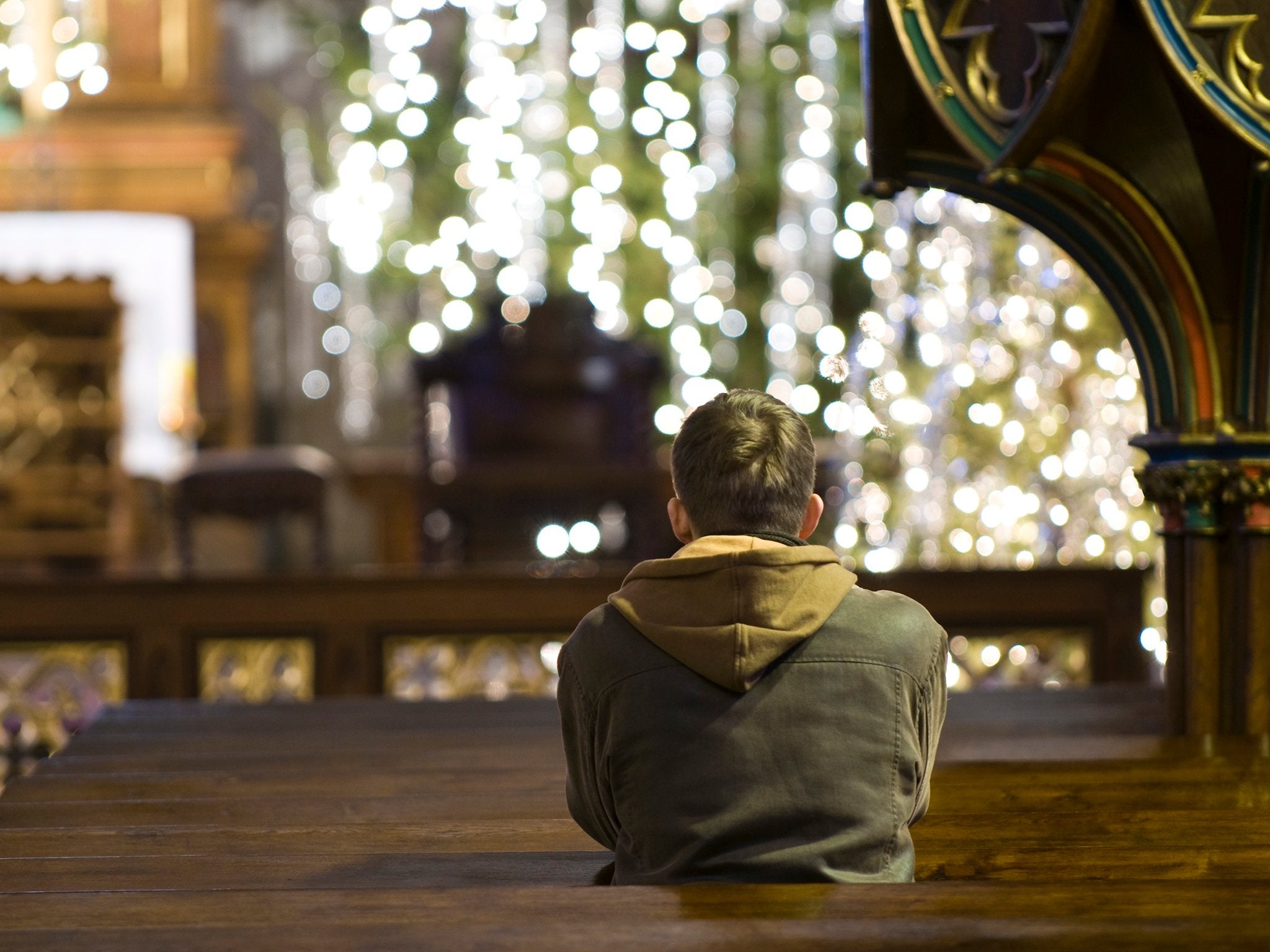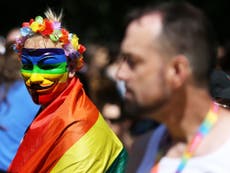I loved my parents and my church – if someone had offered me conversion therapy as a teen, I would have taken it
I spent years trying to 'pray away the gay'. When it didn't work, I had to take drastic action

Growing up as I did going to chapel at least twice a week, God was at the centre of my life. Gay people (let alone LBT+ people) were unknown to me – I didn’t even have the vocabulary to describe them. I remember the television being switched off when Elton John started singing “Candle in the Wind”, and the odd rambling sermon in condemnation of how confused Mel C was (yes, really) – but it is only in hindsight that I have come to realise their significance. They were something we didn’t talk about, and very much not a part of our world.
I felt that I was blessed; lucky to have been born into a family that existed within true faith; a faith based on absolute immovable truths, a scripture that was “God-breathed” – a faith that marked me as one of a privileged few who were destined for heaven. So vehemently did I believe this that I would often try to explain to my friends how they were doomed for hell if they didn’t learn to believe what I believed – the “real”, undiluted truth. I didn’t “believe”, I knew.
Someone who didn’t grow up in a fundamentalist religious household might find it quite hard to imagine what this is like, or how someone so young could come to hold such particular and militant beliefs, but it’s really quite a simple process. At the heart of the vicious cycle of religious inheritance into which I was born lies the simple fact that everything we learn about religion comes from people at the centre of our lives. Our parents take us to church – they believe it’s the right thing to do. They introduce us to the pastor, who we listen to for hours at a time, etching every word they say indelibly onto our young hearts and into our young minds.
It was against this background then that I, as a pretty early bloomer, had a dawning awareness of something within me that didn’t sit comfortably in this context. I had my first crush at primary school, although I didn’t realise it at the time of course – I just remember finding the chap in question remarkably exciting to be around.
On into my early adolescence, with the advent of the internet, this “thing” inside me surfaced more and more regularly, with more and more force, as I embarked on a cycle of furious Google image searching and sexual self-discovery followed by equally furious penitent praying for forgiveness. As I began to realise that it wasn’t going away, I used to spend my nights in absolute fits of prayer, begging to be changed. I started fantasising about a wife and children in my future – I even gave her a name.
After several years of praying and pleading, and with no sign of my feelings in any way abating, I made the decision to come out to my parents. I didn’t really know how it would go down, but I think I knew it wouldn’t be easy – and I was right.
A lot of what I remember from that period in my life is a bit of a blur, one that I am still unpicking, but I do remember being told that it was a phase, equivalences being drawn with bestiality; even the rather redundant suggestion that I might pray about it (which, of course, I already had).
Mercifully, I was actually never offered so-called “conversion therapy”; however, the church my parents attended was a member of the Evangelical Alliance, an umbrella organisation for thousands of evangelical churches and chapels in the UK. Their position today remains as it did then, summed up in their “affirmations”. Crucially, while they gloss over exactly how it should be enacted, they call for people to “renounce same-sex sexual relations” and see the “need to be transformed” – an endorsement of “conversion therapy”, in my view, and one that arguably will not sit well with this change in the law.
With this “therapy” not an option, I was simply presented with an absolute dichotomy: I either had to completely dismantle the belief system that until that point had formed the core of my world, or I could try to forcibly reject my sexuality. This conflict, between a person’s nature and their beliefs, is the conflict that conversion therapy is designed to resolve; it exists to dismantle someone’s nature, in order to bring it in line with their belief system.
Of course, attempting to reject either your religion or your sexuality can both be incredibly traumatic. I avoided conversion therapy, but the rejection of my religion still left me feeling broken inside. If all the hatred you’ve ever experienced from your nearest and dearest is rooted in what they see as their “love” for you, it leaves a person pretty disillusioned about the whole idea of “love”.
If someone had offered conversion therapy when I had come out to my parents, I would undoubtedly have said yes. If someone had said to me, believing what I then believed, that God could cure me of my homosexuality and make everything “right” again, it would have filled me with hope. Don’t forget it is likely that it would have been my parents or my pastor suggesting it; in other words, the people at the centre of my universe, people who understood exactly what I believed and the struggle I was going through. The way I loved people was shattered – if they had offered me a way of fixing it, I would have been overjoyed. I would have been a willing participant.
The “therapy” wouldn’t have come from a licensed therapist, of course – it would have taken the form initially of some prayers in my pastor’s doily-filled living room, presumably, with custard creams on the coffee table. If I had proven a more difficult case, it’s possible I could have been referred to more extreme forms of torture reported by those who have gone through it themselves – those involving some kind of physical deprivation, exposure to certain types of heterosexual pornography, forms of aversion therapy – there really is no limit to the manifestations of this insidious and so often unreported practice.
With the publication of the results of the National LGBT survey today, together with the LGBT Action Plan, attention is being drawn to the government’s announcement that it intends to ban conversion therapy. Why it has remained legal for so long is frankly difficult to discern.
But when legislation comes in, as it must, my hope is that it won’t forget these young vulnerable people. People with parents acting out of love, desperate to please their families and their pastors. They will want to be changed – does the burden lie with them to report their parents, their priest? The damage begins when someone you respect and admire tells you, out of “love”, that the way you love is inherently broken, not when they start trying to fix it. How do you legislate for that?




Join our commenting forum
Join thought-provoking conversations, follow other Independent readers and see their replies